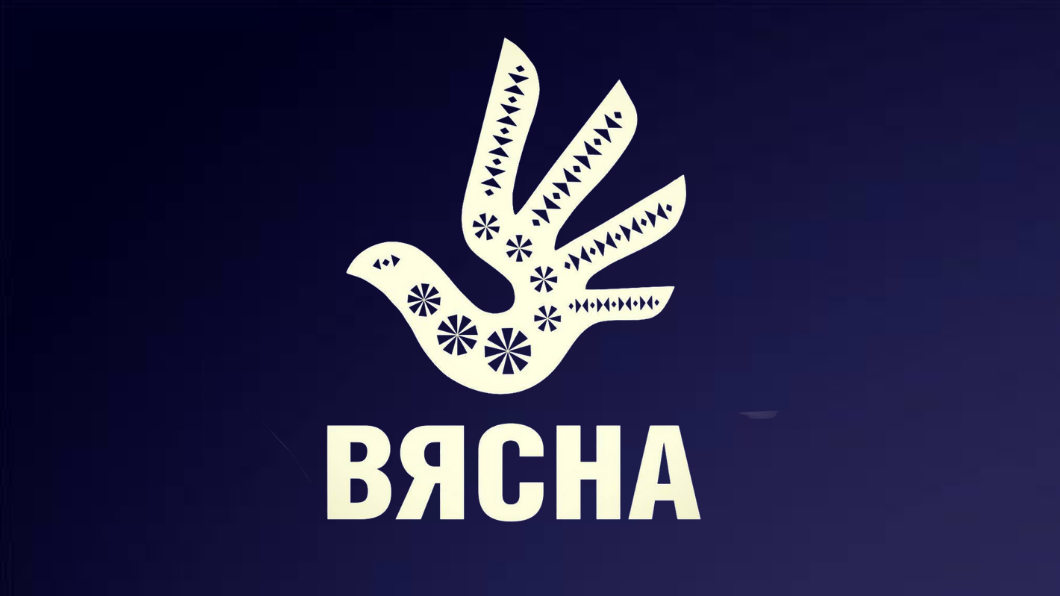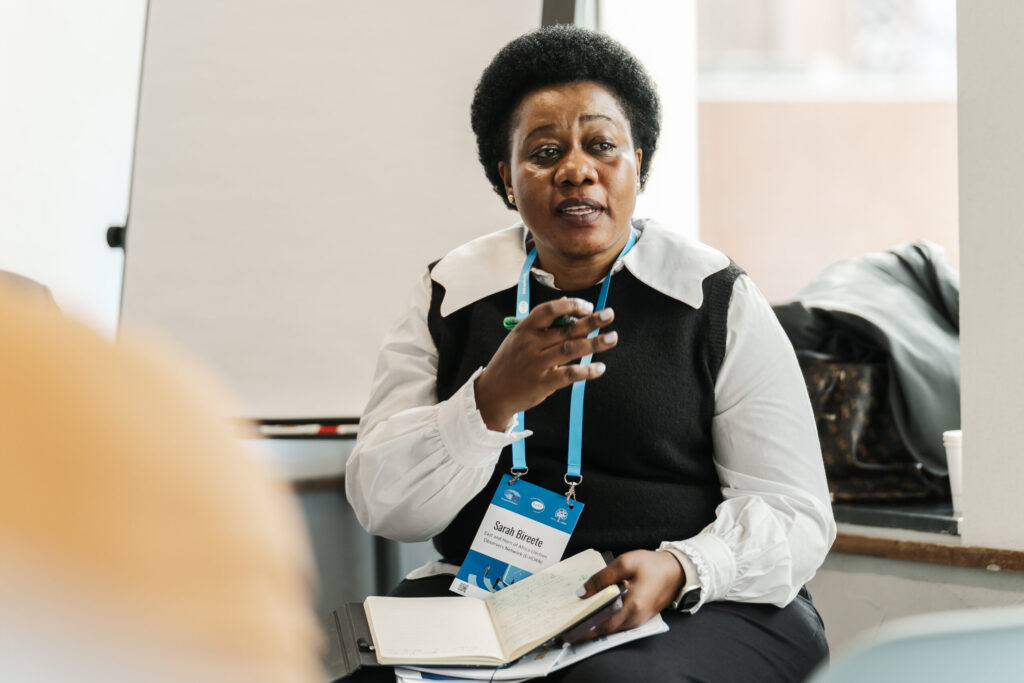- in November, the authorities continued to prosecute individuals on politically motivated charges. Viasna knows the names of at least 143 people convicted in politically motivated criminal trials during the month;
- as of December 1, 888 political prisoners were held in prisons; the number continues to increase steadily;
- members of the Human Rights Center “Viasna” continue to be held in pre-trial detention on arbitrary charges: Ales Bialiatski, chairman of the organization, Viasna member, vice-president of the International Federation for Human Rights (FIDH) Valiantsin Stefanovich; Uladzimir Labkovich, a lawyer and coordinator of the Human Rights Defenders for Free Elections campaign; coordinator of Viasna’s network of volunteers Marfa Rabkova, volunteer Andrei Chapiuk. Viasna member and head of the Center for Strategic Litigation Leanid Sudalenka and Viasna volunteer Tatsiana Lasitsa were sentenced to three years and two years and six months in prison, respectively;
- 30 journalists and media workers continue to be held in detention centers and penal colonies;
- arrests of peaceful protesters continue, as well as arbitrary detentions of individuals for the use of white-red-white symbols, including in private premises and territories. Human rights activists documented at least 275 detentions during the month. In November, courts issued at least 12 fines totaling 18,270 rubles and at least 81 terms of administrative imprisonment totaling 1,143 days for exercising the right to peaceful assembly and freedom of expression, as well as on arbitrary charges of “distributing extremist materials”;
- human rights defenders and journalists continue to document numerous cases of ill-treatment of individuals imprisoned on politically motivated charges, detained and sentenced to terms of administrative imprisonment for participating in peaceful assemblies. Inhumane conditions of detention for this category of detainees deliberately created by the administrations of pre-trial detention centers, pre-trial detention facilities and other places of imprisonment are viewed by Viasna experts as torture;
- 35 OSCE participating States Viasna Political prisoners and politically motivated prosecution
Criminal prosecution of protesters and dissidents in Belarus continues to be the most severe form of repression, spreading to new social groups, while remaining widespread and systemic.
Viasna is aware of The number of political prisoners as of December 1 was 888 and continues to grow steadily.
On November 8, the Lieninski District Court of Brest Ales Bialiatski, chairman of the Human Rights Center Viasna, member of Viasna’s Board, vice-president of the International Federation for Human Rights (FIDH) Valiantsin Stefanovich, Uladzimir Labkovich, lawyer, coordinator of the Human Rights Defenders for Free Elections campaign, Maryia (Marfa) Rabkova, coordinator of Viasna’s network of volunteers (she has been On November 3, the Centraĺny District Court of Homieĺ The trial over Leanid Sudalenka and Tatsiana Lasitsa was held behind closed doors. The defendants were kept in a metal cage, and the judge rejected most of the motions filed by the defense lawyers. Volunteer Maryia Tarasenka was another defendant in the trial. The prosecution demanded that she be sentenced to two and a half years in prison. As a result, Maryia was In connection with the sentencing, the Human Rights Center “Viasna” The UN Working Group on Arbitrary Detention On November 10, the Minsk City Court Mikalai Dziadok was arrested by GUBAZIK officers on November 11, 2020. During arrest, he was severely beaten and gassed with pepper spray to extort access to his devices. He was then forced to appear on camera for a video confession. After his arrest, Dziadok was taken to the GUBAZIK office in Minsk, where he was tortured.
Violations of the freedom of peaceful assembly. Suppression of freedom of expression
Criminal and administrative persecution of peaceful protesters and dissidents continues.
The still sentence individuals involved in the protesters of August 2020. On November 2, the Maskoŭski District Court of Minsk convicted 28-year-old political prisoner Dzianis Lazouski. Judge Tatsiana Pirozhnikava sentenced him to three years in prison under Article 342 of the Criminal Code for participating in a protest on August 10, 2020. On the same day, Judge Aliaksandr Yakunchykhin of the Saviecki District Court of Minsk sentenced Ihar Karaneuski for participating in a protest on August 9, 2020, and sentenced him to three years of restricted freedom in an open penitentiary. In November, courts convicted more than a dozen participants in the events triggered by the August 2020 election.
Police officers continue to organize special operations across Belarus to storm houses and apartments in search of protest symbols, detain people in their work places, conduct searches and interrogations. Viasna has documented 140 detentions in November.
The authorities are stepping up various forms of pressure and repression for active citizenship and opposing government policies. The courts hear administrative cases against persons arrested for displaying flags and stickers on windows and storing them in their apartments, reposting and commenting on social media, as well as other forms of protest activities or expression of opinion.
For example, judge Maryia Yarokhina of the Frunzienski District Court of Minsk sentenced Vadzim Sarafanau to 15 days of administrative imprisonment under Part 1 of Art. 24.23 of the Administrative Code to for “holding an unauthorized picket by placing white-red-white ribbons on the rearview mirror of a Land Rover in an indefinite period of time in order to publicly express his public and political interests.”
Judge Anastasiya Kulik considered the case of Artsemi Nikitsenka at the Pieršamajski District Court of Minsk. According to the charge under Art. 24.23 of the Administrative Code, “at about 1:35 pm on October 27, Nikitsenka held a picket in the Kultura cafe to demonstrate his negative attitude to the current government by displaying red-white-red wristbands with the phrase “Long Live Belarus”. The judged ordered to imprison the defendant for 15 days.
Detentions of peaceful protesters continue, as well as arbitrary detentions of individuals for using white-red-white symbols, including in private premises and territories. Human rights activists documented at least 275 such detentions. In November, courts imposed at least 12 fines totaling 18,270 rubles and at least 81 terms of administrative imprisonment totaling 1,143 days for exercising the right to peaceful assembly and freedom of expression, as well as on arbitrary charges of “distributing extremist materials”. Article 19.11 of the Administrative Code, which punishes the dissemination of extremist material, is increasingly used by the Belarusian authorities to repress dissent.
A common instrument of repression is prosecution on charges of slander against the president, insulting government officials, judges, prosecutors, police officers, and the president (Articles 367, 368, 369, 391 of the Criminal Code). Trials on these charges are held daily throughout Belarus.
On November 18, the Lieninski District Court of Mahilioŭ convicted Siarhei Batura on charges under Part 2 of Art. 368 of the Criminal Code (insulting the president). The court hearings were held behind closed doors. Judge Kseniya Nikifarava sentenced him to two years and six months in a penal colony.
On November 24, the Maladziečna City and District Court sentenced 34-year-old Andrei Yurkou to 1.5 years in a medium-security penal colony for insulting Lukashenka under Art. 368 of the Criminal Code. Yurkou has been in custody since November 8, 2021.
The authorities use other charges to suppress freedom of expression. On November 15, Minsk City Court Judge Alena Ananich Husband and wife, Siarhei Krupenich and Anastasiya Krupenich-Kandratsiyeva, were sentenced to nine consecutive terms of administrative imprisonment each for exchanging news from Telegram channels, which the authorities earlier banned as “extremist”. As a result, they On November 2, 57-year-old Aliaksandr Bembel was released after serving his fourth consecutive term of administrative imprisonment at the notorious detention facility in Akrestsin Street. He spent a total of 43 days in detention for “distribution of extremist materials” (Art. 19.11 of the Administrative Code).
On November 5, the Lieninski District Court of Hrodna labelled the website and social media accounts of Viasna’s local branch as “extremist materials”.
Pressure on journalists and the media
As of late November, there were 30 media representatives in Belarusian prisons.
Journalists are still regularly detained, searched and their homes raided. Media workers are imprisoned for their professional duties.
Torture. Cruel, inhuman and degrading treatment
On November 1, the families of persons arrested for commenting on the “Zeltser case” said that the administration of the Žodzina-based prison No. 8, which accommodated the detainees, On November 4, Viasna Former political prisoners continue to report deliberate deterioration of detention conditions for those arrested in politically motivated cases, which in turn border on torture, are cruel, degrading and inhumane. Human rights activists of Viasna continue to receive information about inhumane conditions of detention in Minsk detention facilities. Detainees and those arrested for political reasons are kept in overcrowded cells, receive no medical care, no outdoor time and no mail or parcels from their families. Prison staff do not respond to complaints about cockroaches in the cells, and patients with covid-19 are often not treated or isolated from healthy people.
People arrested in criminal cases are also held in harsh conditions; prisoners are subjected to pressure and torture in penal colonies.
On November 15, Tatsiana Batura was detained by plain-clothed officers in the building of the Minsk City Court after she came to attend the trial of political prisoner Volha Zalatar. Her whereabouts were unknown for many hours and the police denied having arrested the woman. The following day, the Frunzienski District Court sentenced Batura to 15 days in prison on charges of “disorderly conduct” in the court building (Article 19.1 of the Administrative Code). Tatsiana said during the trial that she had been beaten in the Frunzienski district police department. Police officers reportedly hit the woman’s head against a file cabinet, she was hospitalized and diagnosed with head injury, but judge Maryia Yarokhina said that the incident “had nothing to do with the case.”
Guarantees of a fair trial. Persecution of lawyers
On November 25, the Ministry of Justice’s qualification commission annulled the licenses of several lawyers, including Natallia Aliakseyeva, Aliaksandr Bialou and Natallia Vantsovich. Similarly, the commission questioned the professional qualities of lawyers Iryna Varankova and Ihar Petrashevich. This is likely to result in the revocation of their licenses. The commission also considered the cases of other lawyers earlier disbarred from the Minsk City Bar Association: Siarhei Ivanou, Aliaksei Kerol, Dzmitry Lazavik, Natallia Matskevich, and Yauhen Pylchanka. All of them will not be able to practice law in Belarus.
These cases are clear examples of the inadmissible interference of the executive branch in the activities of the independent associations of lawyers.





